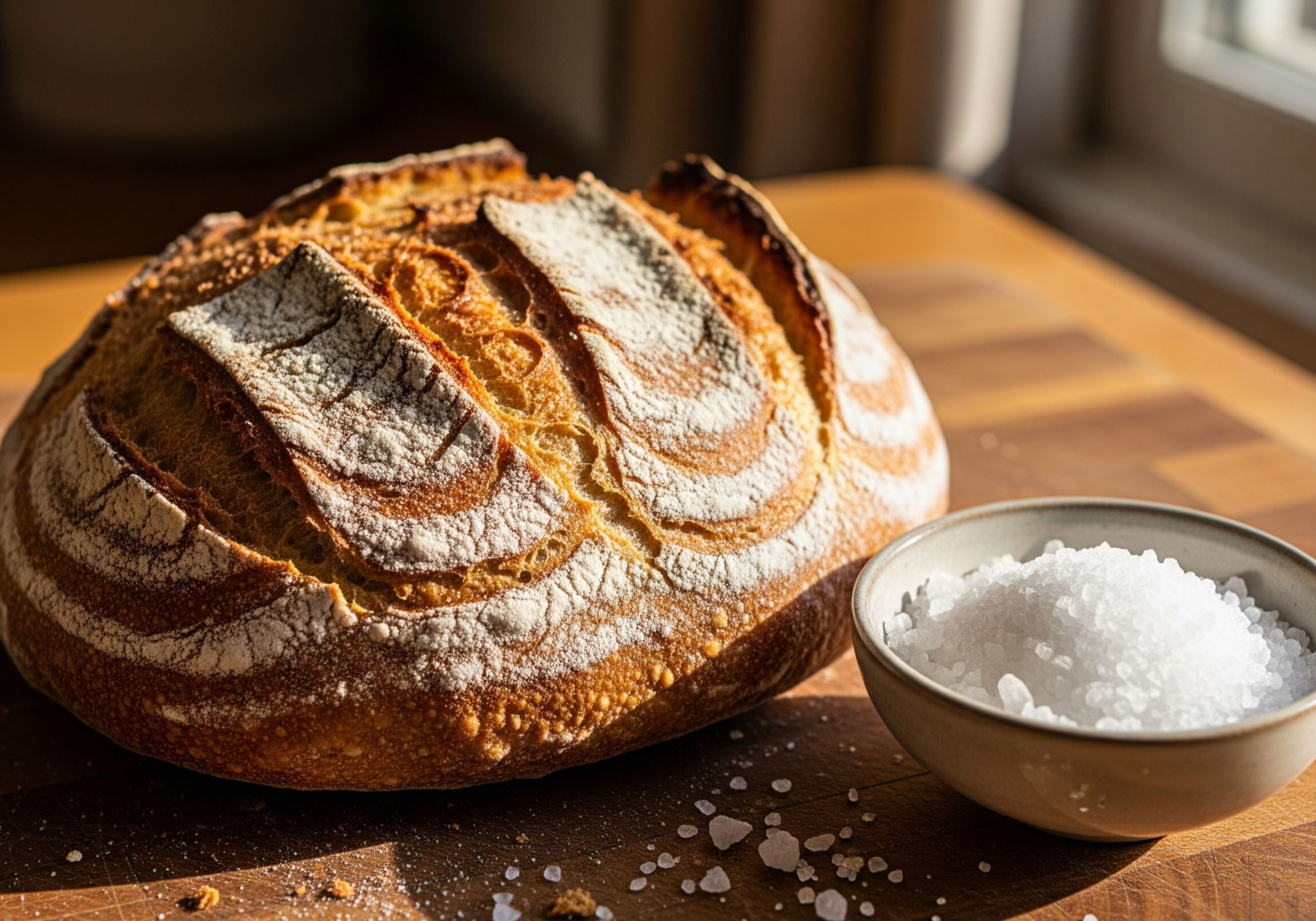The Science of Salt in Sourdough
Why this humble ingredient is your secret weapon for structure and flavor.
In baking, we often think of salt as a simple seasoning. But in the world of sourdough, its role is far more profound. The right amount of salt, added at the right time, is critical for achieving a strong dough, a beautiful crumb, and a complex flavor profile. It's not just about taste—it's about chemistry.

1. Strengthening the Gluten Network
Salt has a tightening effect on gluten strands. When you add salt to your dough, it helps the gluten proteins link together more effectively, creating a stronger, more cohesive network. This strengthened structure is better at trapping the CO2 produced by the yeast, which leads directly to better oven spring and a more open crumb. A dough made without salt will often feel slack, sticky, and weak.
2. Controlling Fermentation
Salt is a fermentation regulator. It slows down yeast activity through osmosis, essentially making water less available to the yeast cells. This is a good thing! Unchecked, yeast can ferment too quickly, exhausting its food supply before the dough has developed sufficient flavor and structure. By slowing things down, salt gives the dough time to develop the complex acidic notes that make sourdough so delicious.
The CrumbScience Connection
The CrumbScience Predictive Engine accounts for the inhibitory effect of salt. When you input your salt percentage, our model adjusts its fermentation timeline, giving you a more accurate prediction. This is why accurately measuring your ingredients is so important for consistent results.
3. Enhancing Flavor
This is the most obvious role, but it's worth noting. Salt not only adds its own savory taste but also enhances the subtle, wheaty flavors of the flour and balances the sourness from the fermentation. A loaf without salt will taste flat and bland, even if it's perfectly fermented.
4. Improving Crust Color
By slowing down yeast activity, salt preserves some of the residual sugars in the dough. These sugars are essential for the Maillard reaction and caramelization during baking, which are responsible for creating a deeply browned, flavorful, and crispy crust.
Factor It In!
Ready to see how salt impacts your bake time? Use the CrumbScience tracker and see the prediction change as you adjust your salt percentage.
Go to the Fermentation Tracker